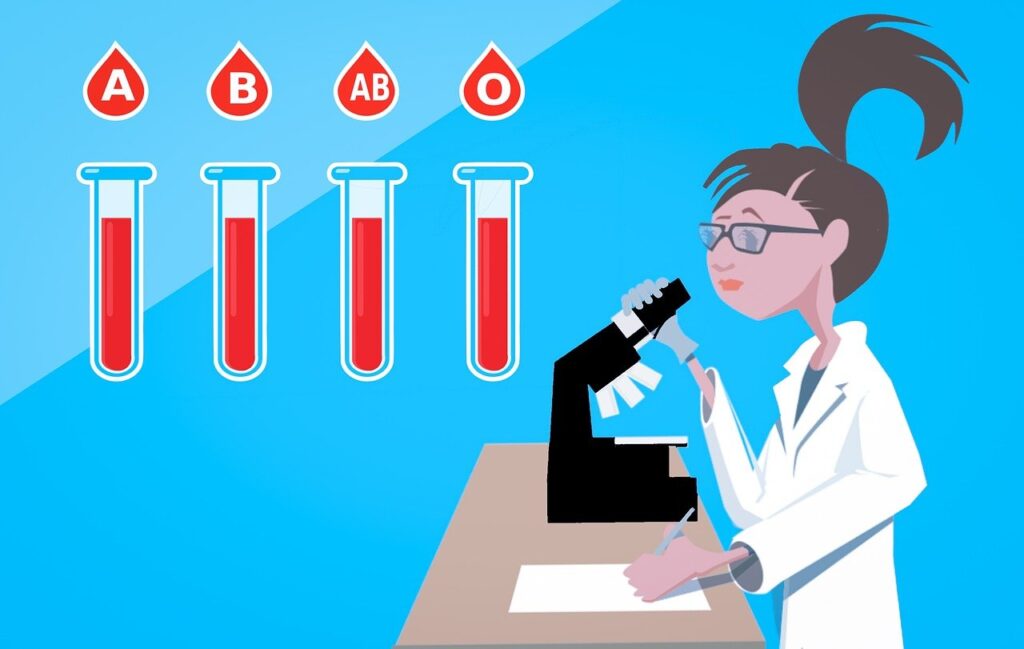
different blood groups and their properties
Blood is essential for human survival, performing crucial functions such as transporting oxygen and nutrients, removing waste products, and supporting the immune system. One of the most important characteristics of blood is its classification into different groups. Understanding your blood group is vital for safe blood transfusions, organ transplants, marriage and even understanding rare conditions like the “Golden” blood type.
What are Blood Groups?
Blood groups are classifications based on the presence or absence of specific antigens and antibodies in the blood. Antigens are substances on the surface of red blood cells (RBCs), while antibodies are proteins in plasma that react against foreign substances. The two most important systems for blood group classification are the ABO system and the Rh system.
The ABO Blood Group System
The ABO blood group system is the primary classification method, dividing blood into four groups based on the type of antigens present on RBCs:
Group A
Has A antigens on the surface of RBCs and anti-B antibodies in the plasma.
Group B
Has B antigens on the surface of RBCs and anti-A antibodies in the plasma.
Group AB
Has both A and B antigens on RBCs but no anti-A or anti-B antibodies in the plasma. This group is known as the universal recipient.
Group O
Has no A or B antigens on RBCs but has both anti-A and anti-B antibodies in the plasma. This group is known as the universal donor.
The Rh Blood Group System
The Rh system classifies blood based on the presence (+) or absence (−) of the Rh factor (D antigen) on RBCs:
Rh-positive (Rh+)
The D antigen is present on RBCs.
Rh-negative (Rh−)
The D antigen is absent on RBCs.
When combining the ABO and Rh systems, there are eight possible blood types: A+, A−, B+, B−, AB+, AB−, O+, and O−.
The Golden Blood Type: Rhnull
One of the rarest and most fascinating blood types in the world is known as “Golden” blood, scientifically referred to as Rhnull. This blood type is so rare that fewer than 50 people worldwide are known to have it. Rhnull blood lacks all 61 antigens of the Rh system, making it extremely valuable for medical research and transfusions.
Why is it called Golden Blood?
The term “Golden” refers to its rarity and immense value in medical contexts. Due to its unique properties, Rhnull blood can be compatible with any Rh-negative blood type, making it a universal donor for Rh-negative patients.
Challenges of Rhnull
Despite its value, having Rhnull blood can be a challenge for those who possess it. Finding a compatible donor in case of a transfusion need is incredibly difficult, and people with Rhnull blood are often advised to be cautious about their health and register with international blood donation networks.
Importance of Blood Group Compatibility
Understanding blood groups is crucial for several medical scenarios:
Blood Transfusions
Matching blood groups between the donor and recipient is critical to avoid adverse reactions. For example:
- A person with A+ blood can receive A+ or O+ blood.
- A person with O− blood can donate to anyone but can only receive O− blood.
Pregnancy and Hemolytic Disease of the Newborn (HDN)
If an Rh− mother carries an Rh+ fetus, her immune system may produce antibodies against the fetus’s RBCs, leading to HDN. This condition can be prevented with Rh immunoglobulin injections during and after pregnancy.
Marriage and Family Planning
Blood group compatibility is also an important consideration in marriage, particularly concerning the Rh factor. If an Rh− woman marries an Rh+ man, there is a possibility that their child could inherit the Rh+ blood type, leading to complications like HDN in subsequent pregnancies. Couples are often advised to undergo blood group testing and counseling before marriage or planning a family to address any potential risks.
Organ Transplants
Blood group compatibility is essential for organ transplants, as mismatched blood types can lead to organ rejection.
Blood Group and Diet
Some people believe that your blood type can influence the best diet for your health. While the scientific evidence supporting this idea is limited, it is still a popular concept:
Type A
Suggested to follow a vegetarian diet, rich in fresh fruits and vegetables.
Type B
Recommended to consume a balanced diet that includes meat, dairy, grains, and vegetables.
Type AB
Advised to eat a mixed diet, incorporating elements of both Type A and B diets.
Type O
Encouraged to consume a high-protein diet with lean meat, fish, vegetables, and fruits.
Fun Facts About Blood Groups
O− is the most needed blood type
Because it is the universal donor, O− blood is often in high demand in emergencies.
AB+ is the universal recipient
People with AB+ blood can receive any blood type, making them the universal recipients.
Rare Blood Types
Some blood types, like AB− or B−, are very rare, making it challenging to find donors.
Read: What your urine colors tells about you
To Sum Up
Understanding blood groups is not only fascinating but also essential for safe medical practices and personal life decisions like marriage and family planning. Whether you’re donating blood, undergoing surgery, or planning a family, knowing your blood type and its compatibility can be lifesaving. While the concept of blood-type diets remains debated, the importance of blood group compatibility in transfusions, organ transplants, and pregnancy is well-established.







